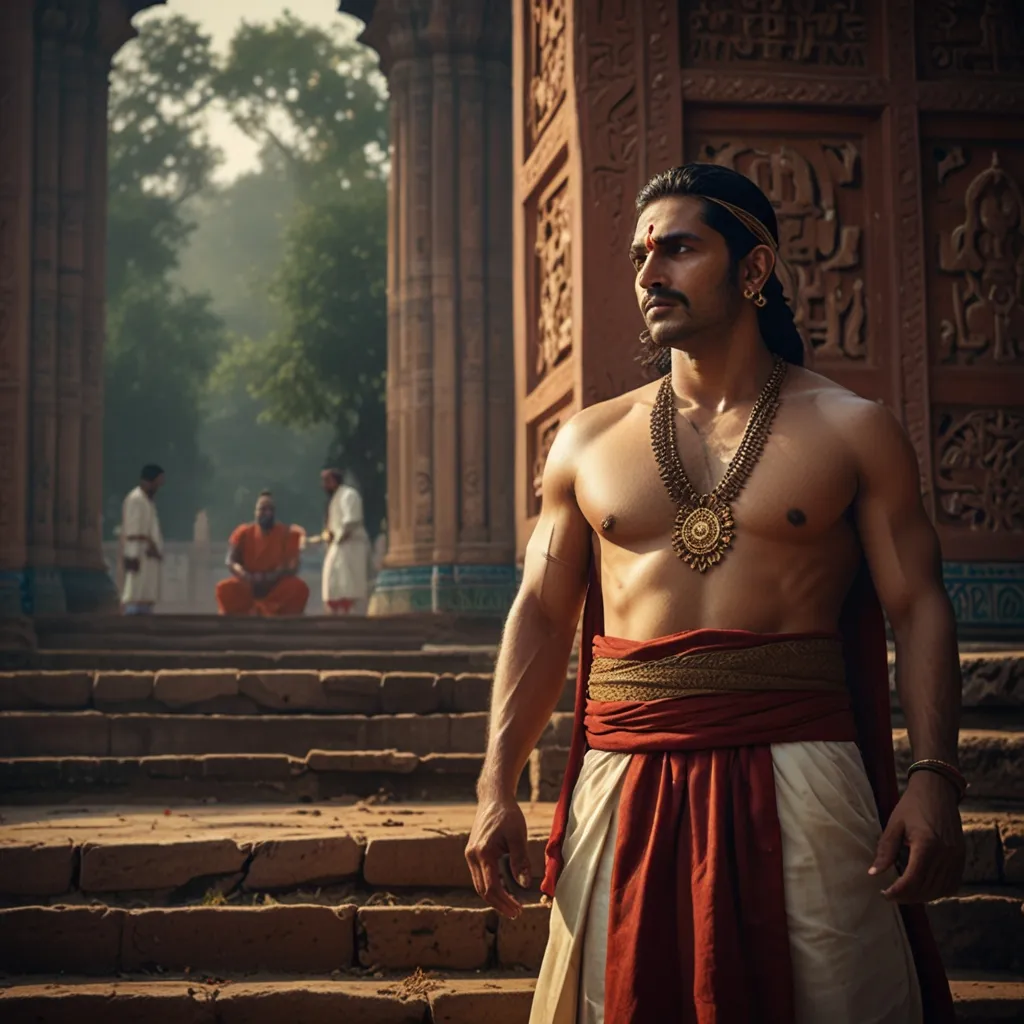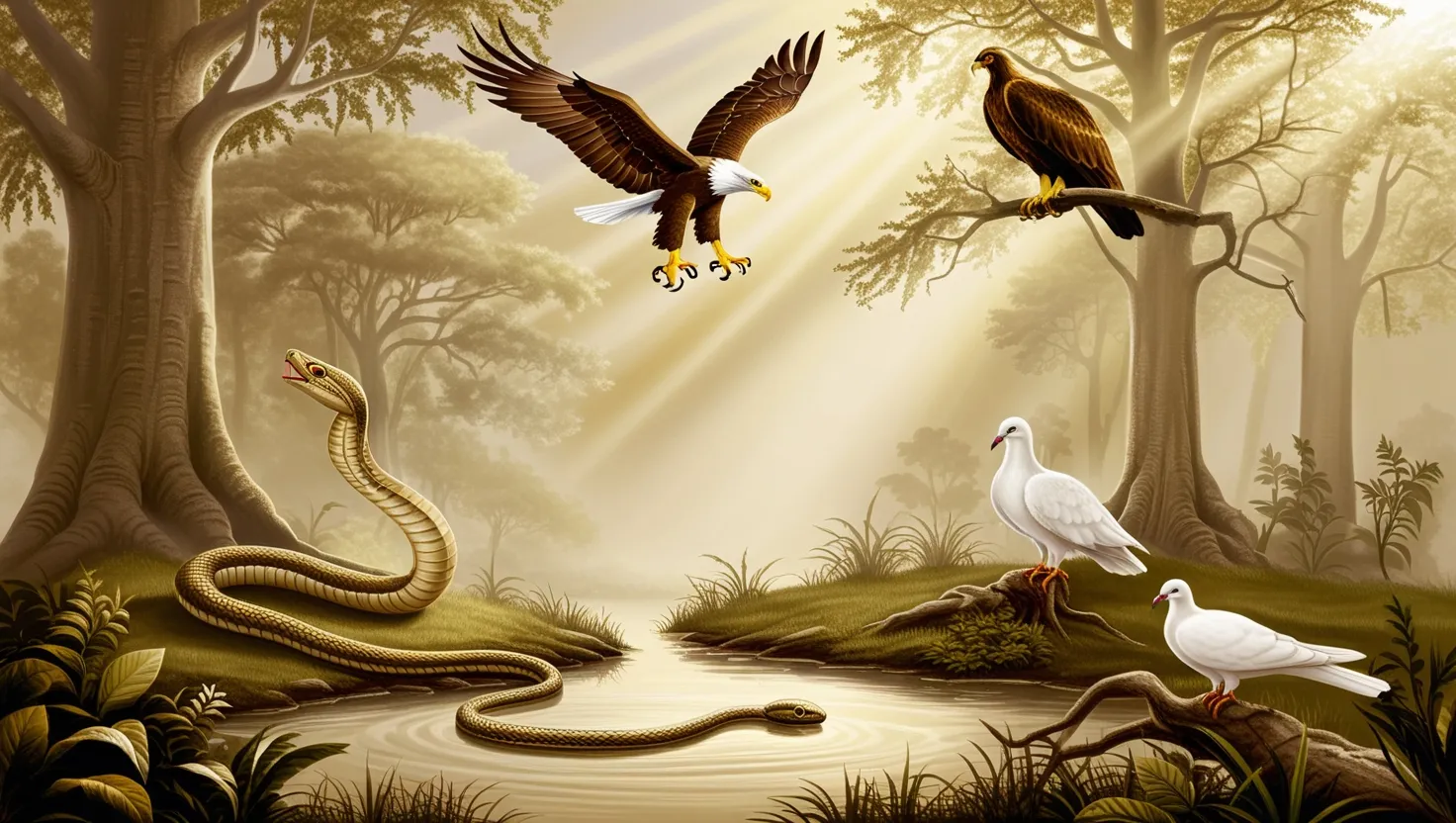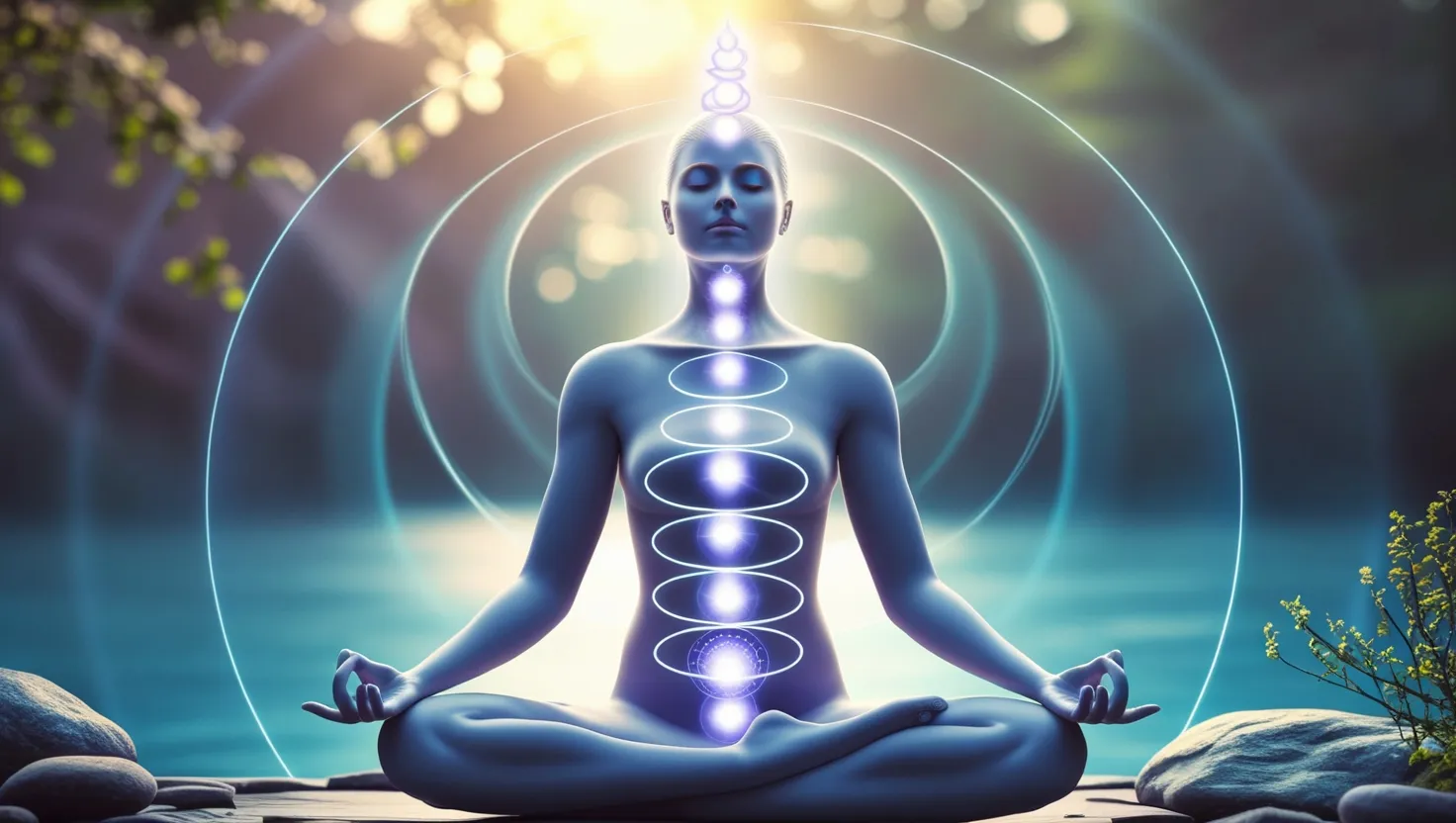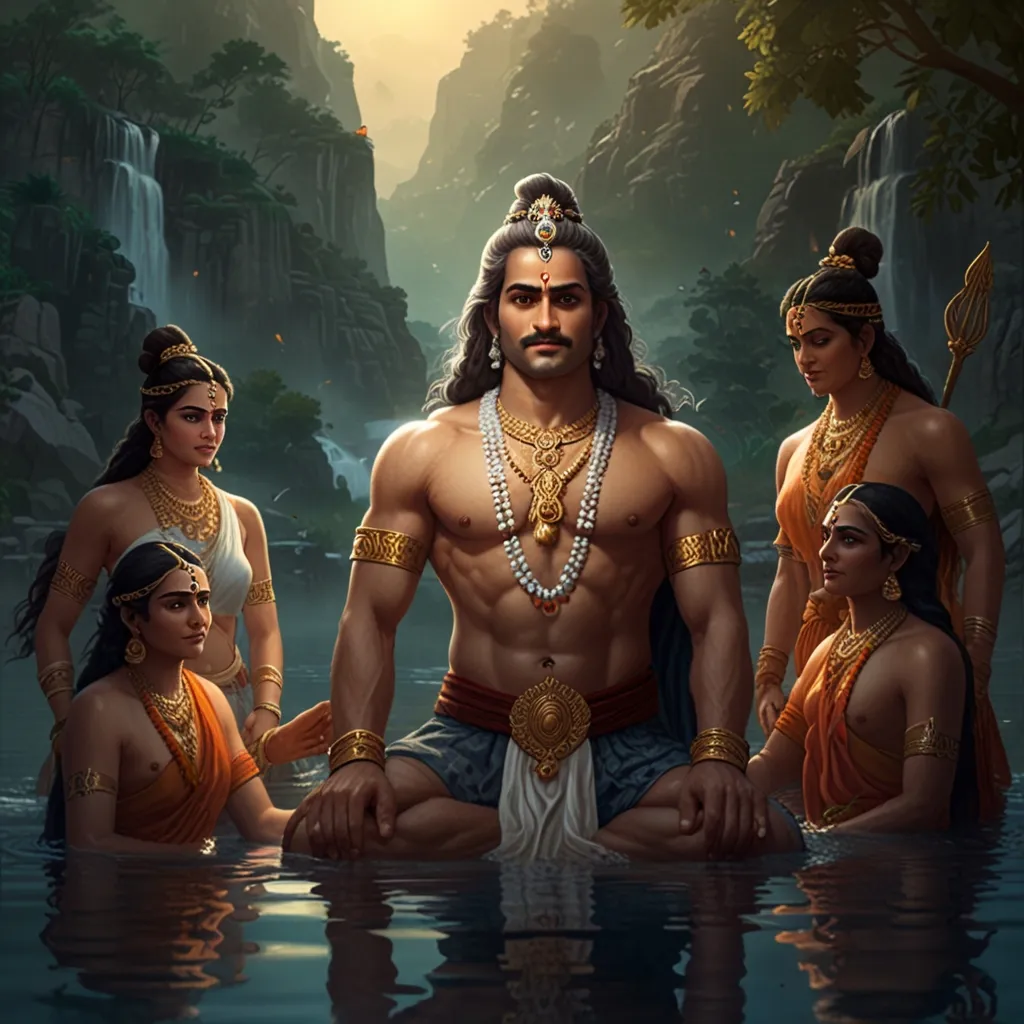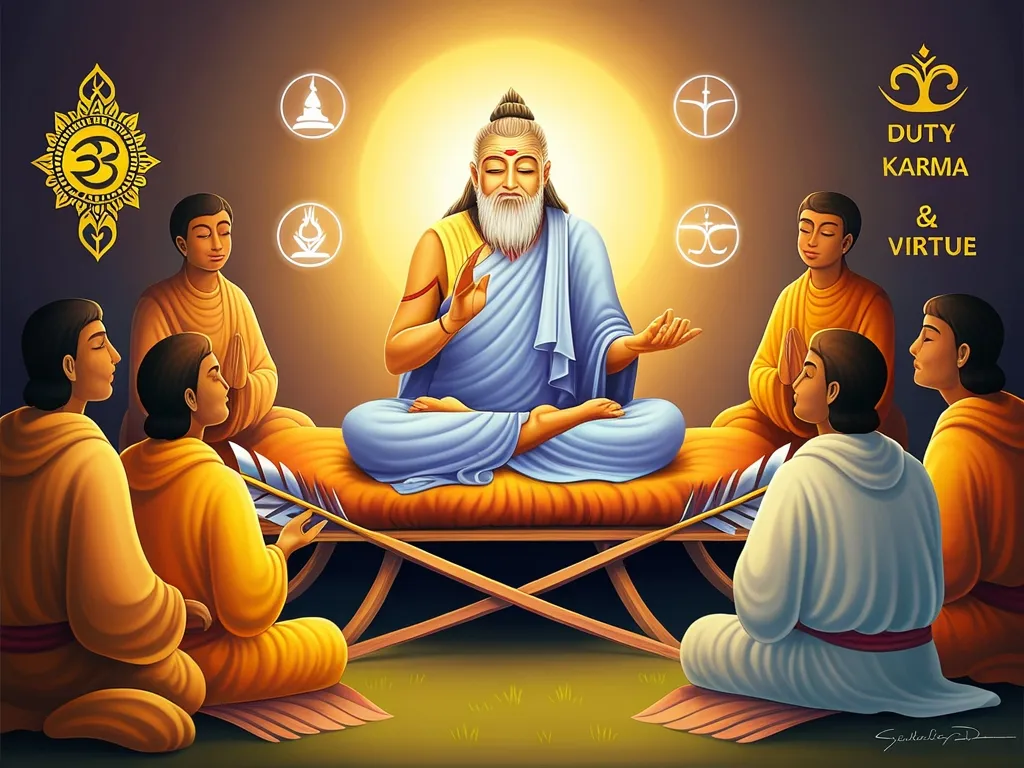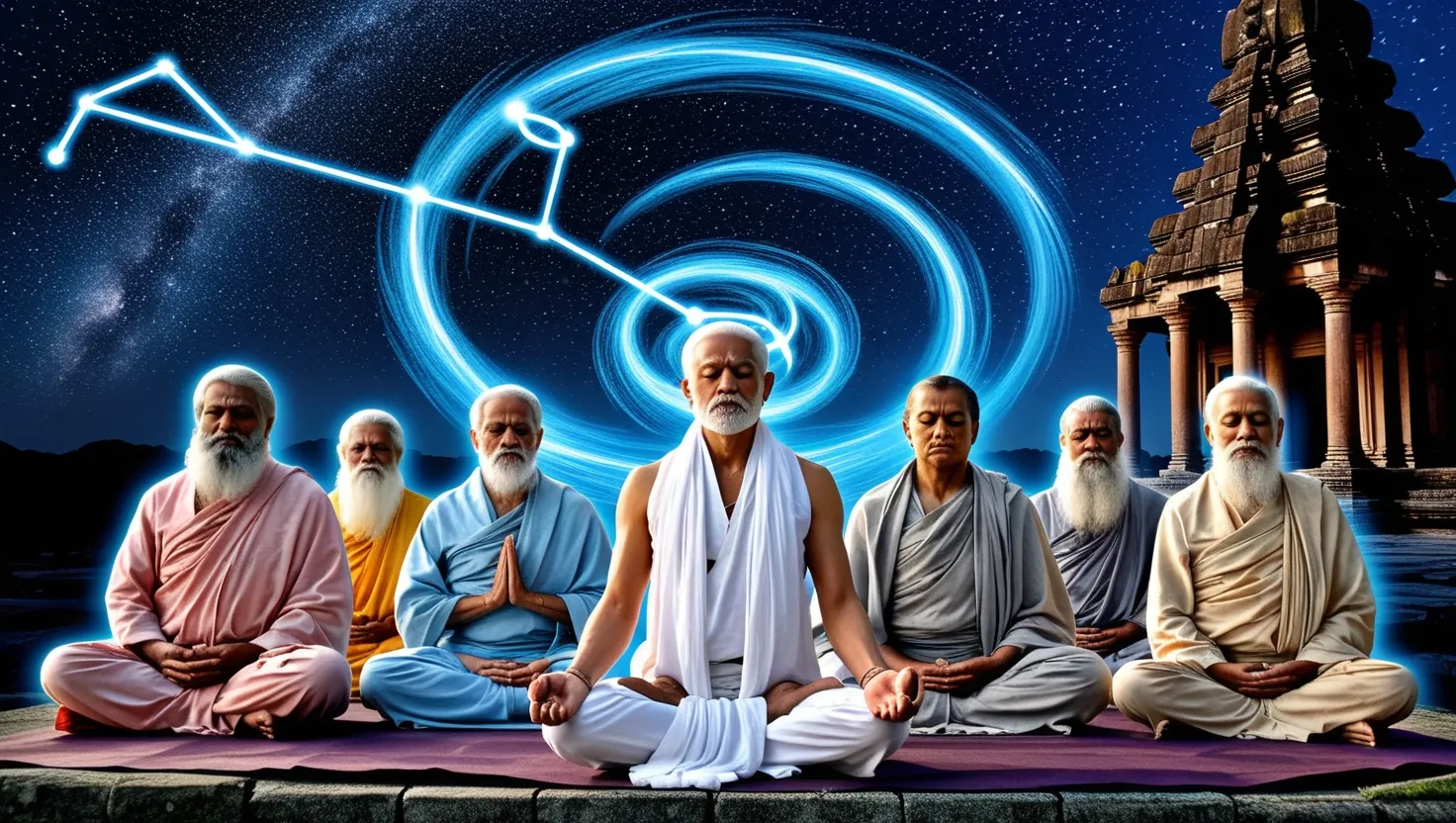In the heart of the ancient epic of the Mahabharata lies a riveting tale of revenge and betrayal involving Drona and Drupada, two former friends whose relationship turned sour. Their story starts in the serene ashram of Sage Bharadwaja. Back then, Drona, a poor but extraordinarily talented boy, and Drupada, a prince from the kingdom of Panchala, were best buddies. They made a pact to always be there for each other, no matter what. Life seemed good and their bond, unbreakable.
As life often does, it took them on different journeys. Drupada ended up becoming the king of Panchala, while Drona walked the path of a sage and a teacher. Even with his incredible wisdom and unmatched skills in martial arts, Drona couldn’t shake off poverty. He struggled to support his family, and there were days when his son, Ashwatthama, went to bed with an empty stomach. One day, the little lad asked his friends for some milk, but they handed him a mixture of flour and water, a crude act that deeply hurt Drona. This moment of cruelty lit a fire inside him, reminding him of Drupada and that long-forgotten promise.
Determined to seek help from his old friend, Drona made his way to Drupada’s palace. But things had changed. The once humble Drupada was now a proud, vain king. Drona’s request for a cow, a simple plea to feed his son, was met with insults. Drupada mocked Drona, calling him a beggar, shattering the last remnants of their friendship.
From that day, revenge became Drona’s driving force. He threw himself into training the Kuru princes, among them Arjuna, who would grow into one of the most legendary warriors. When the princes completed their training, Drona demanded a unique Gurudakshina—a traditional offering to a teacher—by asking them to invade Panchala and capture Drupada.
The first assault was led by the impulsive Kaurava princes, spearheaded by Duryodhana. But they faced a humiliating defeat as the common folks of Panchala, armed with mere tools, fought back bravely. Their failure only fueled Drona’s resolve. Turning to Arjuna, Drona tasked him next. Alongside his brother Bhima, Arjuna successfully captured Drupada and presented him to Drona.
Drona confronted his old friend, reminding him of their lost friendship and the unkept promise. As a consequence, Drona claimed half of Panchala and made his son Ashwatthama the ruler of that part. This public humiliation stung Drupada deeply, filling him with a burning desire for revenge.
Determined to exact his own vengeance, Drupada performed a sacrificial yagna, a sacred ritual aimed at begetting a child destined to kill Drona. The gods responded, blessing him with a son named Dhrishtadyumna and a daughter named Draupadi. Dhrishtadyumna’s destiny was clear: to kill Drona. Draupadi, on the other hand, was fated to become Arjuna’s wife, weaving their lives even tighter into the complex web of destiny.
Years flew by and the stage was set for the epic Kurukshetra War—Pandavas versus Kauravas. Drona, siding with the Kauravas, left an indelible mark on the battlefield. His talent as a warrior was formidable but often controversial. On the war’s 15th day, Drona massacred many Pandava soldiers, including Virata. This sparked a fierce desire for vengeance in Dhrishtadyumna, who found his moment and decapitated Drona, breaking the conventional rules of war.
Krishna rationalized the act, referencing Drona’s involvement in the death of young Abhimanyu. Arjuna, however, condemned this brutal act, mirroring the moral ambiguity and entangled relationships that characterized the war.
The saga of Drona and Drupada isn’t merely an ancient story but a timeless lesson. It underscores that revenge doesn’t solve our problems. Drupada’s refusal to aid Drona set off a chain of events, leading to catastrophic results for both sides. Revenge spawns more suffering and it’s always wiser to forgive, to move forward. The tale also highlights the weight of promises and the fragility of friendships. Breaking promises and betraying friends can lead to severe and often irreparable damage.
In the end, Drona and Drupada’s story serves as a poignant reminder of how vengeance can be corrosive, emphasizing the value of integrity, loyalty, and forgiveness in our relationships.
Their tale, etched deeply in the annals of mythology, is a mirror reflecting the destructive nature of retribution and underscores the importance of holding true to our word and cherishing our bonds. So, let’s take a leaf from their story and choose compassion over revenge, forgiveness over bitterness, and integrity over betrayal.
